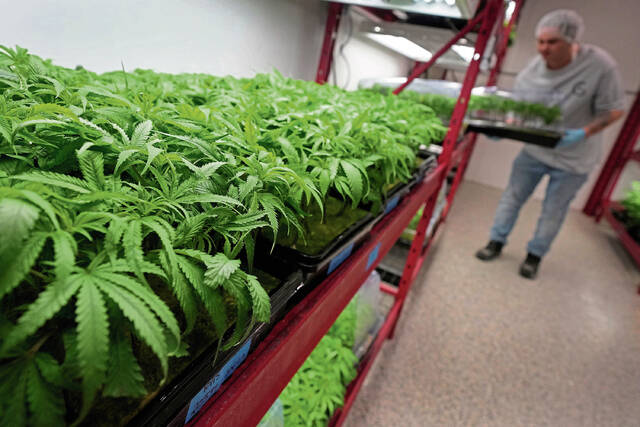Summer sun, heat and humidity can do a number on sensitive skin. Put a mask on top of it and you might end up with irritation and breakouts that have been labeled “maskne.”
“For some of our patients, it is a problem,” says Dr. Charles Mount, director of the Allegheny Health Network Division of Dermatology.
Maskne is not a skin condition in itself, he says. Rather, it’s more likely a flareup of an existing condition such as acne, rosacea or eczema; an allergic reaction, or a reaction to the friction of mask fabric against skin.
“With prolonged wearing of a mask, with the increased heat and humidity of summer, there is a buildup of moisture under the mask,” Mount says.
Because masks will be around for a while, maskne probably will be, too.
Mount suggests a few simple tips for taking care of skin, so you won’t feel like hiding behind a mask once you can take it off in public.
• Wash your face twice a day.
• Simpler is better when it comes to skin-care routines. If possible, it’s better to remove products like toners, peelers and tightening agents from your routine for now.
• Avoid products containing fragrances, which can irritate skin.
• Moisturize regularly. Consider a moisturizer that contains hyaluronic acid, which helps alleviate dry skin and promotes wound healing (and as a bonus, reduces the appearance of fine lines and wrinkles).
• If oily skin is a problem, carry some pre-medicated acne wipes with you. “Take your mask off when you can, and wipe your face quickly,” Mount says.
• Go easy on makeup. Products like foundations and powders can clog pores.
A consistent skin-care routine is important, pandemic or not, says Julia Straka, an aesthetician at Rivé Nail + Skin Care Spa in Murrysville. The first step she recommends in a twice-daily routine is to double-cleanse the skin.
“The first cleansing is for the surface, the second goes deeper,” she says. In total, face washing should take 3 to 5 minutes.
“Most people don’t spend enough time cleansing, and oils and bacteria are left on the skin,” she says.
Straka notes that there is a misconception that people with oily skin shouldn’t use moisturizers, “but every skin needs a moisturizer, and there are products specially made for oily skin.”
‘Wear your mask’
Mount notes that stress also can worsen skin conditions, and the past few months have been a time of great stress for many people.
He also notes that there is a lot of misinformation circulating on the negative effects of wearing a mask, particularly about carbon dioxide buildup.
“CO2 buildup is not an issue,” he says.
As for the best type of mask to wear, Mount says that can depend on a person’s profession, the length of time they’ll be wearing it and the level of protection needed.
“For the general public, cotton or another natural material is good,” he says. “Hand wash it once or twice a week with a gentle detergent, one made for sensitive skin, and let it air dry.
“For a paper mask, if you’re wearing it all day long, the wimpier ones might last a day or two. A better-quality mask might last up to a week.”
“Maskne is still a relatively rare thing, so it’s important to do the appropriate thing to protect yourself and others and wear your mask,” he says.








